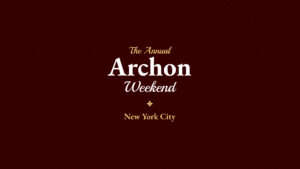By the Grace of God
Archbishop of Constantinople, New Rome
And Ecumenical Patriarch
To the Plenitude of the Church
Grace, Peace and Mercy
By the Savior Christ Risen in Glory
Dearly beloved brothers and children in the Lord,
Christ is Risen!
In sullenness, one day in the 19th century, humankind heard from the lips of the tragic philosopher: “God is dead! We killed him! All of us are his murderers … God will remain dead! What else are the churches but tombs and graves of God?” [1] And only a few decades later, we heard from the lips of his younger colleague: “Gentlemen, I declare to you the death of God!” [2]
These declarations of atheist philosophers shook the conscience of people. Much confusion ensued in the field of the spirit and of literature, of art and sometimes even of Theology, where, especially in the West, there was debate even about a “Theology of the death of God.”
Of course, the Church never had the slightest doubt that God had died. This occurred in 33AD, on the hill of Golgotha in Jerusalem, in the reign of Pontius Pilate, the Roman Governor of Judaea. After suffering an unspeakable passion, He was crucified as a criminal and, at about the ninth hour of the Preparation of the Passover, he said: “It is accomplished!” and surrendered His spirit. This is an unquestionable historical reality. The Only-begotten Son and Word of God, Jesus Christ, the true God, died for our sake. [3] After assuming everything that we have: body, soul, will, energy, toil, agony, pain, sorrow, joy, all things except sin, he finally assumed our greatest concern, namely death — indeed, in its most cruel and humiliating expression, namely on the Cross. To this point, we are in agreement with the philosophers. We would even accept that the churches, the temples, are “the tombs and graves of God.” Nevertheless … we recognize, experience and worship this God who has died, as “a most life-giving dead.” Only moments after that awful Preparation, in the morning watch of “the first of the Sabbath,” on the day of the Lord, what occurred was the reason for which the divine economy of the flesh, passion, cross and descent into Hades took place. The Resurrection! And this Resurrection is an equally unquestionable historical reality! This reality has immediate and salvific consequences for all of us. The Son of God, who is at the same time the Son of Man, was risen. God was resurrected together with all of humanity that He assumed: in the Body that He received from the pure blood of the Most Holy Theotokos as well as in His sacred soul. He was risen from the dead, “resurrecting the whole of Adam in His loving-kindness.” Christ’s grave, the “empty tomb” of Joseph, is forever empty. Instead of being a grave for the dead, it is a memorial of victory over death; it is a fountain of life! The spiritual Sun of Righteousness has dawned “beautiful, as from a grave,” granting the unwaning light, peace, joy, gladness, and eternal life. It is true that the temples were the “tombs” of God, but they were empty tombs, filled with light and replete with “the fragrance of life” [4] and the smell of Paschal spring, brilliant, splendid, adorned in glory and with life-giving flowers of tangible hope. The death of God overturned the powers of Hades; death itself was reduced to nothing more than a mere incident introducing humanity from death to Life. The Churches, those “tombs of God,” are the wide-open gates of divine love, the opened entrance to the Bridal chamber of God’s Son, who “came out of the tomb as from a Bridegroom,” while we faithful enter therein and “celebrate the death of death, the annihilation of Hades, the beginning of a new, eternal way of life; and, thus rejoicing, we offer hymns to the cause, namely the only blessed and glorious God of our fathers.” [5]
It is fortunate, then, that God died because His death became the source of our life and resurrection. It is fortunate that there are so many of His “tombs” throughout the world, so many sacred temples, where each of can freely enter when we are in pain, tired, and in need of consolation in order lay before God the burden of our suffering, agony, fear and insecurity — namely, in order to become rid of our death. It is fortunate that we have Churches of the crucified, dead, risen and living Christ, where before the hopelessness of our time, the betrayal of all idols, the “lowly gods” that have stolen our hearts, such as the economy, the ideology, the philosophy, the metaphysics and all those “empty deceits” [6] of our “age of deception,” [7] we can find refuge, comfort and salvation.
From the Ecumenical Patriarchate, the Mother Church, which experiences to the utmost the Passion, Pain, Cross, and Death, as well as the Resurrection of Christ, we extend to all the faithful of the Church our wholehearted Paschal greeting and blessing, together with the embrace of our Lord Jesus Christ, who was risen from the dead and lives eternally, granting life to all people. To Him be glory, might, honor and worship, with the Father and Holy Spirit, to the ages. Amen.
Your fervent intercessor before the Risen Christ
To be read in the Churches during the Divine Liturgy of the Feast of Holy Pascha, immediately after the Holy Gospel.
[1] F. Nietzsche.
[2] J.-P. Sartre.
[3] 2 Cor. 5.14.
[4] 2 Cor. 2.16.
[5] Troparion of the 7th Ode, Canon of Pascha.
[6] See Col. 2.28.
[7] The Akathist Hymn.







